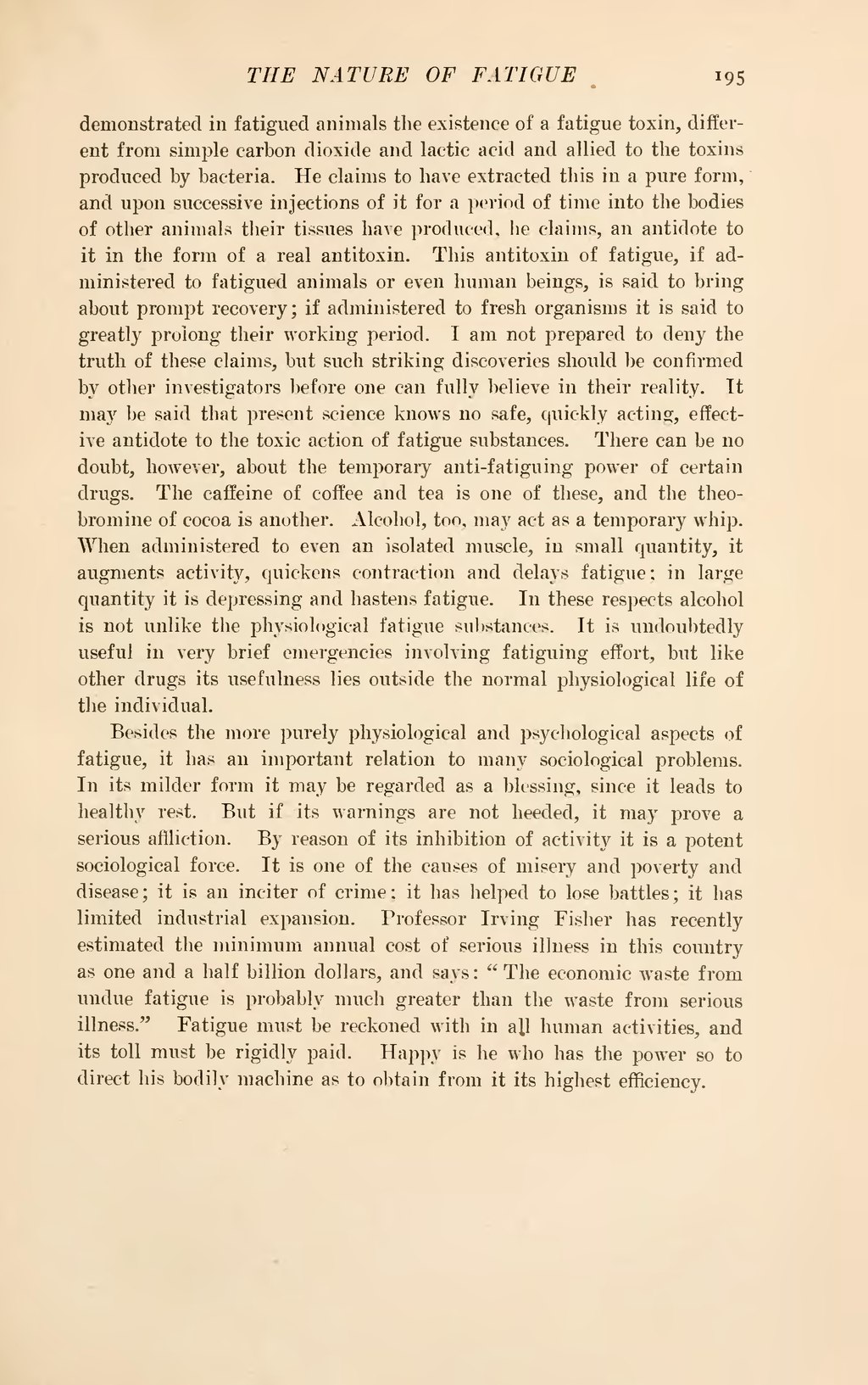demonstrated in fatigued animals the existence of a fatigue toxin, different from simple carbon dioxide and lactic acid and allied to the toxins produced by bacteria. He claims to have extracted this in a pure form, and upon successive injections of it for a period of time into the bodies of other animals their tissues have produced, he claims, an antidote to it in the form of a real antitoxin. This antitoxin of fatigue, if administered to fatigued animals or even human beings, is said to bring about prompt recovery; if administered to fresh organisms it is said to greatly prolong their working period. I am not prepared to deny the truth of these claims, but such striking discoveries should be confirmed by other investigators before one can fully believe in their reality. It may be said that present science knows no safe, quickly acting, effective antidote to the toxic action of fatigue substances. There can be no doubt, however, about the temporary anti-fatiguing power of certain drugs. The caffeine of coffee and tea is one of these, and the theobromine of cocoa is another. Alcohol, too, may act as a temporary whip. When administered to even an isolated muscle, in small quantity, it augments activity, quickens contraction and delays fatigue; in large quantity it is depressing and hastens fatigue. In these respects alcohol is not unlike the physiological fatigue substances. It is undoubtedly useful in very brief emergencies involving fatiguing effort, but like other drugs its usefulness lies outside the normal physiological life of the individual.
Besides the more purely physiological and psychological aspects of fatigue, it has an important relation to many sociological problems. In its milder form it may be regarded as a blessing, since it leads to healthy rest. But if its warnings are not heeded, it may prove a serious affliction. By reason of its inhibition of activity it is a potent sociological force. It is one of the causes of misery and poverty and disease; it is an inciter of crime; it has helped to lose battles; it has limited industrial expansion. Professor Irving Fisher has recently estimated the minimum annual cost of serious illness in this country as one and a half billion dollars, and says: "The economic waste from undue fatigue is probably much greater than the waste from serious illness." Fatigue must be reckoned with in all human activities, and its toll must be rigidly paid. Happy is he who has the power so to direct his bodily machine as to obtain from it its highest efficiency.
